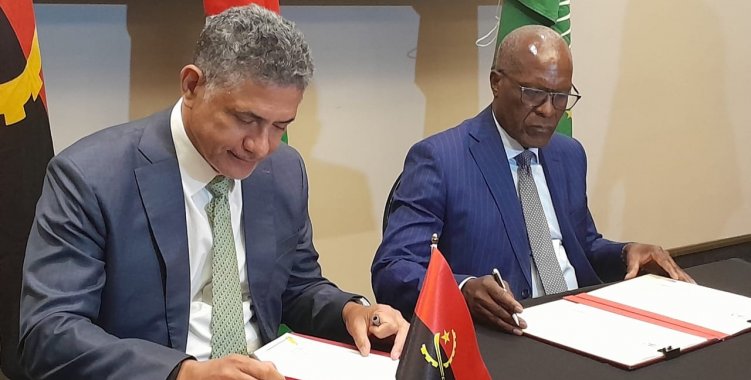According to the Minister of Energy and Water, João Baptista Borges, the agreement signed this Monday in Windhoek, capital of Namibia, celebrates the realization of a common vision of the two African States, their respective leaders and people aiming for common development and regional economic integration.
The construction of the Baynes Hydroelectric Plant has a planned capacity of 860 MegaWatts (MW) for the main dam and 21MW for the regulation dam.
According to the minister, who in his speech during the ceremony highlighted the need for works to begin in 2026, the main dam is budgeted at 1.375 billion dollars.
"This agreement marks the beginning of the joint use of the hydroelectric potential of the Cunene Basin, opening a perspective for the sharing of production between our countries, the participation of the private sector, the promotion of public-private partnerships in the field of production, transport, distribution and commercialization of electrical energy", said João Baptista Borges.
"[The Baynes agreement] that we have just concluded, presents us, on a legal level, with urgent challenges, highlighting the need to conclude its complementary protocols, namely, the protocols inherent to the governance and management of the Project's Common Zone", he noted.
The minister also considered, in the speech to which Lusa had access, that the agreement signals the need to implement common protocols on the use of water, energy sharing between the parties, customs control, taxation and other fiscal instruments.
Similar efforts of an "urgent" nature must be developed with a view to the rapid institutionalization of the Lower Cunene Binational Office and its installation in one of the States, the declaration of the public utility of the project in each of the States and the responsibilities of each of the States with the transfer of land for the implementation of the project, he noted.
The Baynes Hydroelectric Plant therefore constitutes "an important factor in the generation of wealth (...), and it is therefore urgent to promote and conclude all legal, administrative, economic, statutory, diplomatic, consular and other acts that are complementary to it or deemed relevant, with a view to starting construction in 2026", concluded Baptista Borges.







